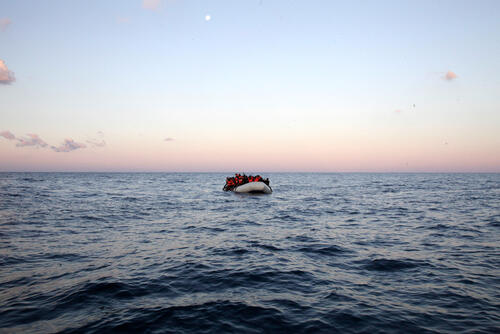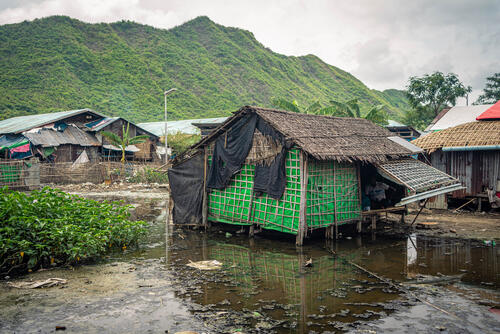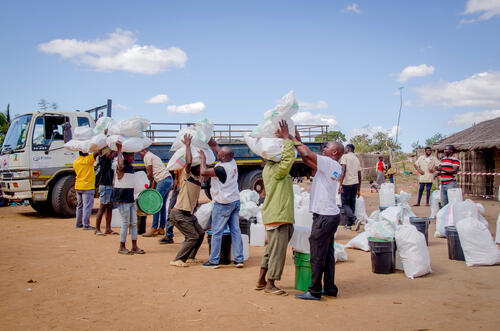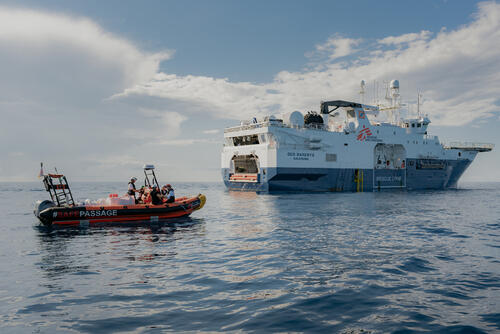After six separate rescue operations in three days on board the Geo Barents search and rescue ship, Médecins Sans Frontières (MSF) teams have rescued 439 people from the Central Mediterranean Sea who had fled Libya in search of safety.
After two requests for a place of safety to the Maltese authorities were ignored and then denied, MSF calls on the Italian authorities for a safe port for disembarkation. The Geo Barents needs to urgently disembark all 439 survivors so that they can begin to receive the assistance they need with respect and dignity.
The Geo Barents began its seventh rotation in the Central Mediterranean on 14 January, leaving the Sicilian coast and travelling south to the Libyan Search and Rescue (SAR) zone. Between 19-21 January, our teams monitoring the sea responded to multiple distress calls from several drifting boats and managed to bring all people safely aboard the Geo Barents.
[The prison guards] forced us to call our families to ask for ransom money and they threatened to kill us.Jimmy*, shipwreck survivor on board the Geo Barents.
Among the 439 survivors on board the Geo Barents, many come from Eritrea, Bangladesh, Pakistan, Sudan and Egypt. The majority are men and 112 are minors – most of whom are unaccompanied. There are also nine women and three very small children, the youngest of whom is under one year old. All have fled Libya and travelled for many hours, risking their lives on unseaworthy boats.
“The third time they [the Libyan Coast Guard] caught me at sea I was taken to prison. [The prison guards] told me that I had to pay to be freed,” says Jimmy*, a shipwreck survivor who was safely brought aboard the Geo Barents.
Jimmy spent a year and a half in Libya and had attempted to cross the sea four times before being rescued. “[In the detention centre] I had just one piece of bread to eat per day. They gave us toilet water to drink,” he says.
“They forced us to call our families to ask for ransom money and they threatened to kill us [if they didn’t pay]. Libya makes you mentally ill, and you have no idea how to get out of there.”
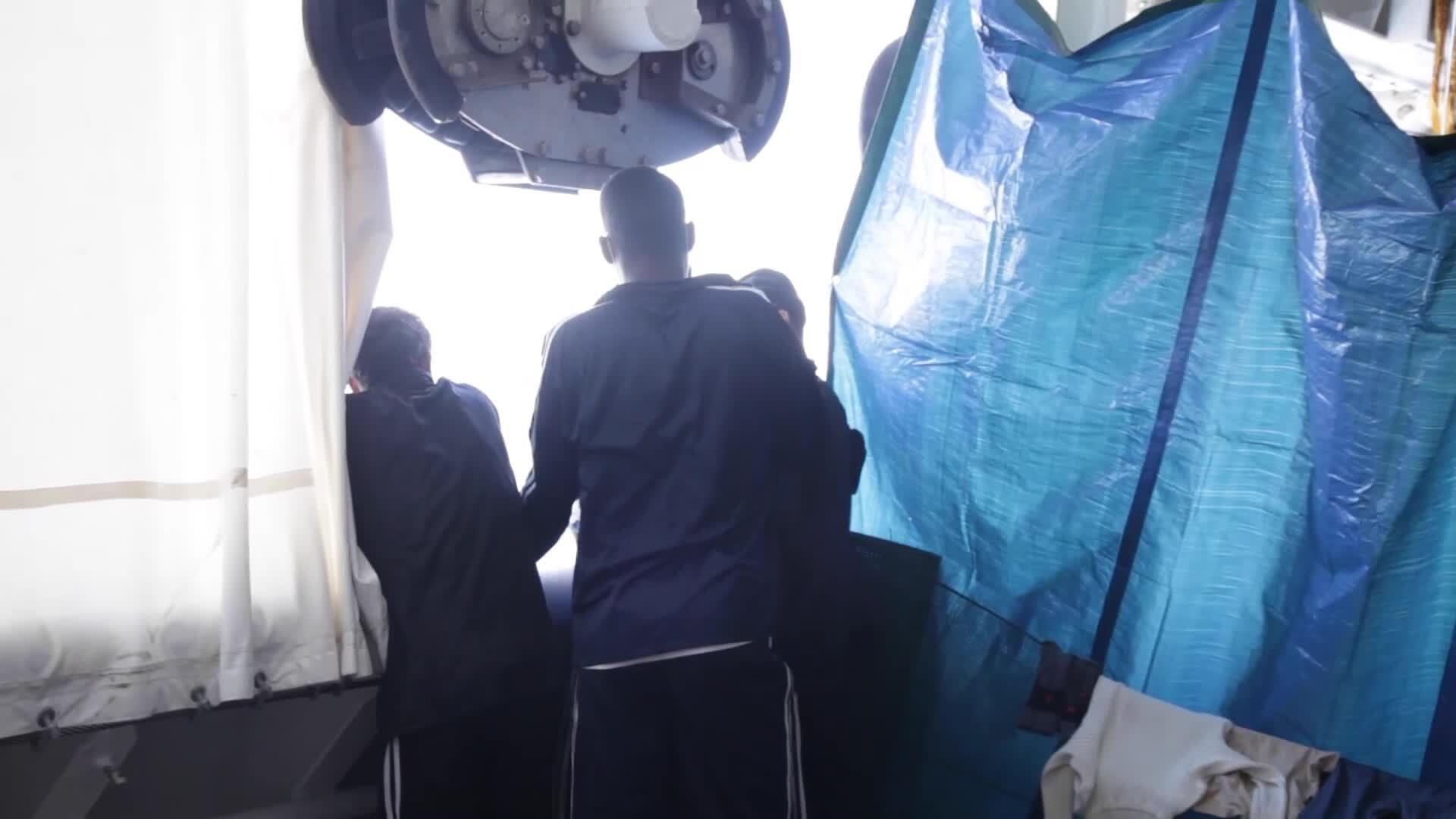
Jimmy's story
MSF teams have offered medical care and psychological assistance to everyone on board. Some survivors required medical attention for mild and moderate signs of hypothermia, body pains, and seasickness due to the rough weather conditions over the past few days. Several people are also receiving medical treatment for malnutrition.
“The survivors have no serious medical concerns, but many are suffering from the physical and psychological effects of their time in Libya, where they were victims of extreme violence," says Alida Serracchieri, MSF medical team leader on board the Geo Barents.
“One man arrived on board with a wound on his head that required stitches. They are all exhausted. They need a place to disembark in safety, to recover and receive adequate assistance,” says Serracchieri.
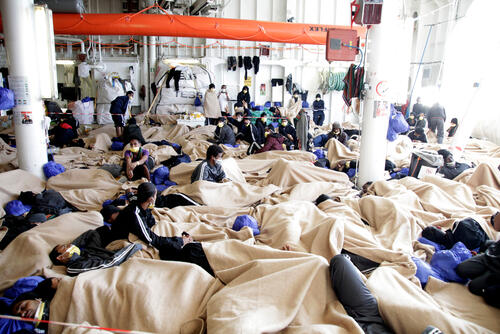
Hager Saadallah, MSF psychologist on board the Geo Barents, says many people are experiencing psychological distress after surviving traumatic events in Libya, along their routes and in their countries of origin, and that their mental health is now deteriorating after several days on the ship.
“The most common symptoms are psychosomatic pain, anxious overthinking, sleeping issues, traumatic flashbacks and general distress,” says Saadallah.
“The living conditions on board can potentially lead to a further deterioration of these symptoms: anxiety and tensions are rising due to the uncertainty about their future. The work of processing their trauma can only start once survivors are in a safe and secure environment on land,” she says.
*Name has been changed.



